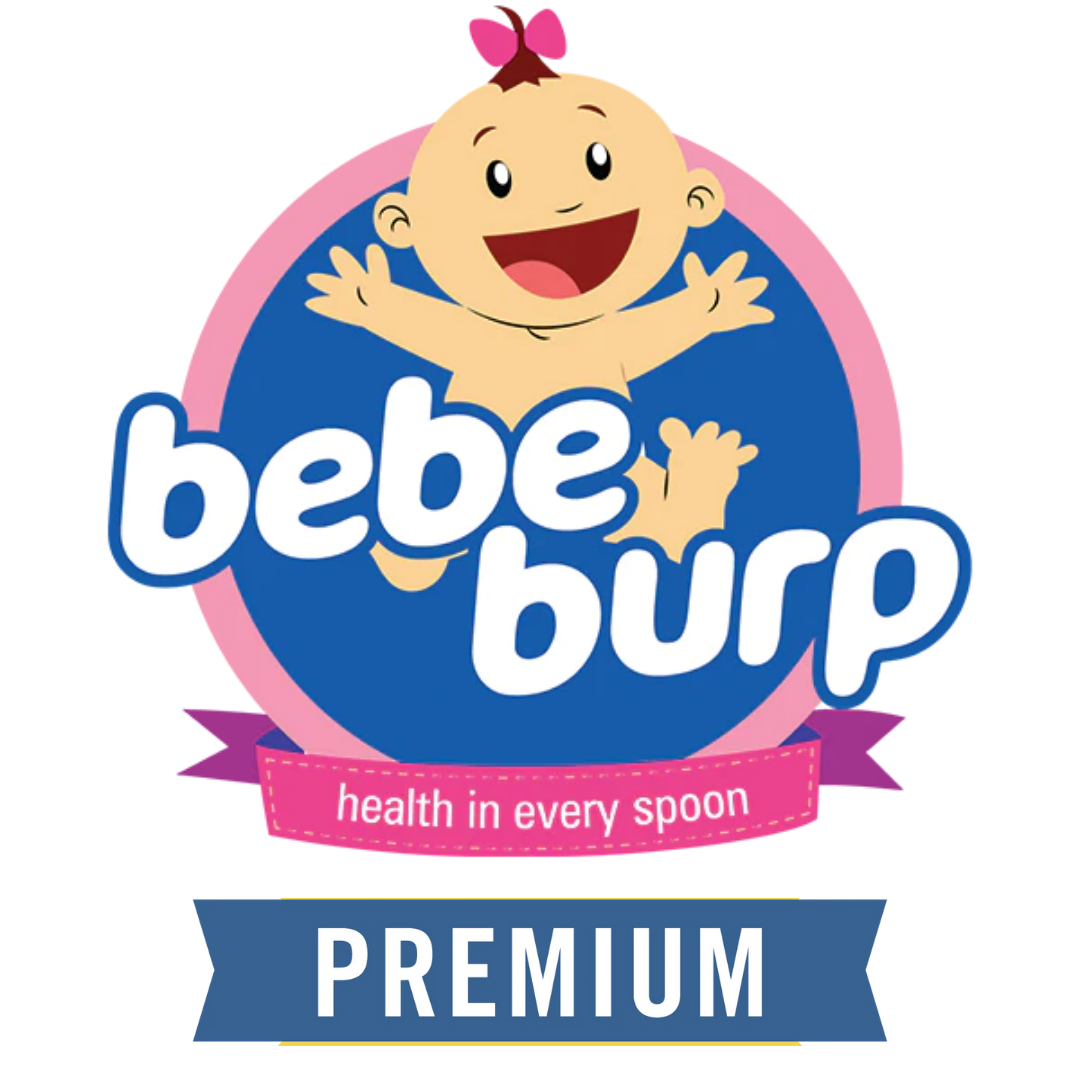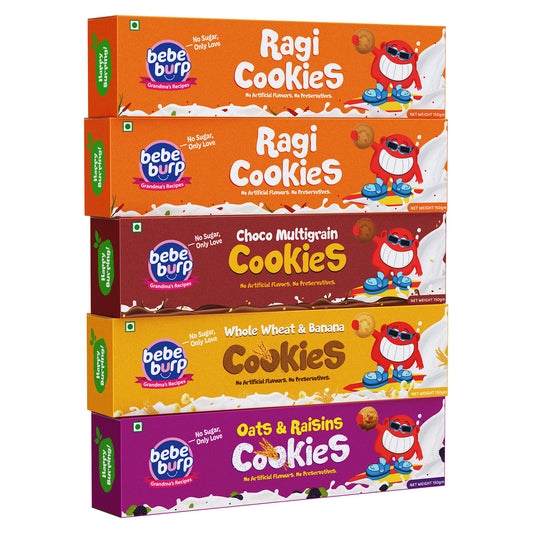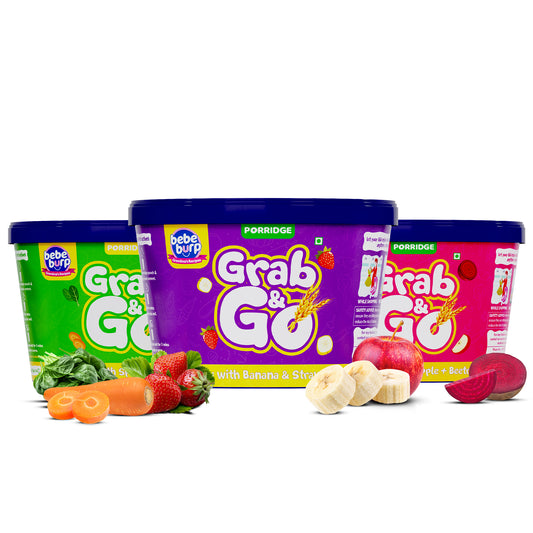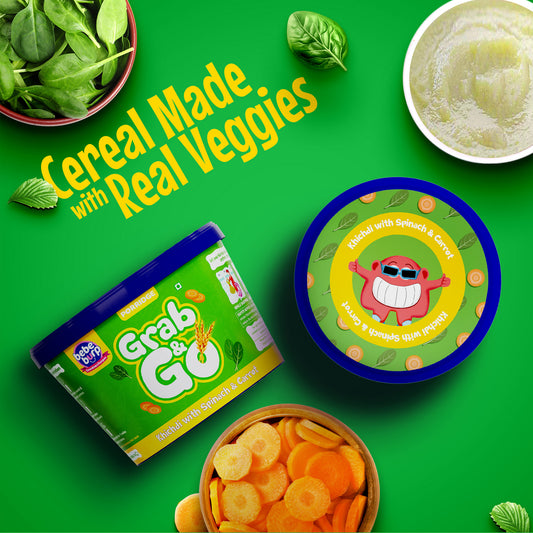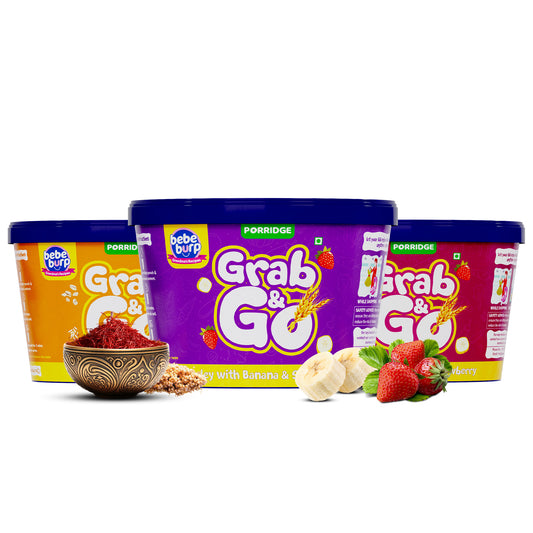Have you ever attempted to eat a mango while holding a baby? I am sure you can imagine the situation—sticky hands, giggles, and a piece taken directly from your palm.
As adults, we enjoy mangoes, and your baby will enjoy them too. But are they safe? Nutritious? Let's check out the realm of mangoes for babies!
Can Babies Have Mango?
Absolutely! Babies can enjoy mango once they are prepared for it. This tropical fruit is naturally sweet.
It is soft when mature, so it is easy to mash and blend or even cut into baby-friendly finger food. Moreover, it is rich in nutrients.
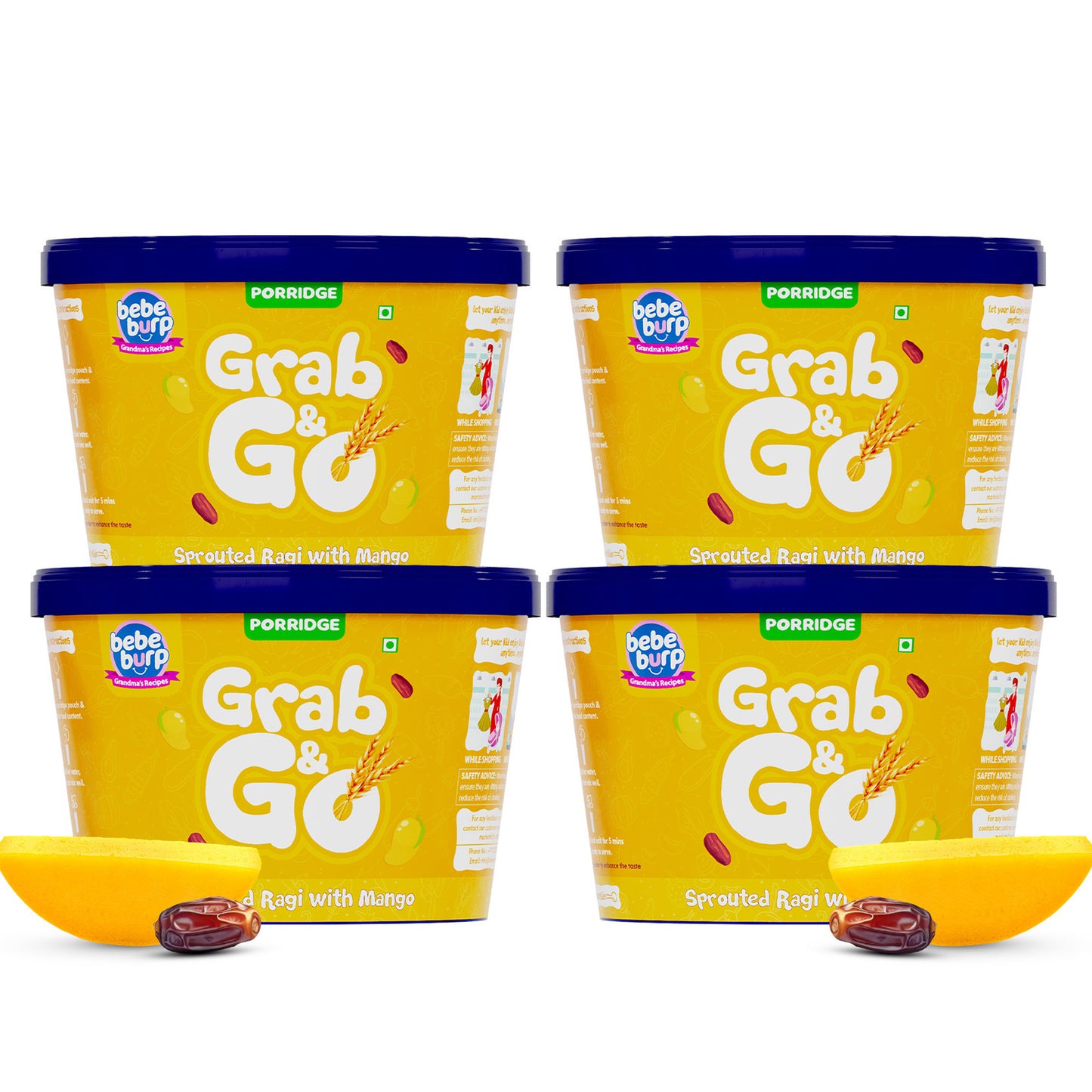
Bebe Burp Travel Pack – Sprouted Ragi with Mango (Pack of 4) – 25g Each
A healthy snack on the go, packed with sprouted ragi and mango. Perfect for toddlers, providing essential nutrients for growth!
Rs. 386
Buy NowWhen to Introduce Mango to Baby
- Recommended Age: Six months or so when the baby starts on solid foods.
- Always ensure that the baby can sit upright and show other signs of readiness, such as head control and interest in food.
- Warning: Introduce mango as a single-ingredient food without any Additives. After 3 to 5 days, a different food can be introduced to monitor allergies.
Health Benefits of Mango for Babies
Learn why mango should be included in your child's meals:
- A good source of Vitamin A: Benefits eye health and immunity
- A good source of Vitamin C: Enhances iron uptake and improves immune response to illness
- Dietary Fiber: Promotes digestion (goodbye upset stomach!)
- Natural sweetener: No added sugars required
Mango Allergy in Babies – What Parents Need to Know
Although it is rare, having an allergy to mango is possible, especially to the skin/peel, which contains urushiol (also found in poison ivy). Be alert for:
- Redness on or near the mouth
- Bumps
- Swelling, difficulty in breathing (severe cases only)
- Bowel and/or stomach problems
Consult your pediatrician and cease feeding mangoes to your child if you suspect any signs of allergy.
How to Select and Prepare Mango for Babies

How to select the most nutritious mango:
- Pick the ones that are soft, fully ripe, and have a sweet scent.
- Do not pick the fibrous or bitter types for younger toddlers.
- Organic is reasonable but not obligatory—wash them well.
Tips on Preparing the Dish:
- Peel and take out the seed.
- Mash, blend, or cut into small, soft pieces
- Mango should never be served with skin or large pieces for infants.

Sprouted Ragi Mango Porridge – 200g
A delicious and nutritious porridge made with sprouted ragi and mango. Packed with essential nutrients for a healthy start to the day!
Rs. 299
Buy NowTypes/Varieties of Mango Ideal for Babies
- Alphonso (India): Has a sweet flavor and has a smooth texture
- Ataulfo (Honey Mango): Creamy and less fibrous, suitable for babies
- Kent/Kesar: Soft flesh, sweet and low in fiber
Avoid:
-
Green or unripe mangoes can be acidic and irritate a baby's stomach
-
Fruits that have a fibrous structure, which is difficult to chew or digest
How to Introduce Mango Age-Wise

6–8 Months:
- Mango pure (steamed or fresh)
- Mix with expressed breastmilk or formula to enhance recognition.
- Offered with a spoon or as a dip for independent self-feeding
9–12 Months:
- Mango combined with yogurt or oats to form a mash
- Soft, small-sized mango pieces for independent self-feeding (under supervision!)
- Blend into smoothies
12+ Months:
- Chunks of mango and frozen mango pops
- Mango is added to other fruits in toddler bowls for easy eating.
- Used as toppings for pancakes, chia puddings, or toast
FAQs
Q1) Can mango cause skin allergy in babies?
Ans: The allergy-producing agent exists specifically in mango skin. It is essential to remove skin layers before serving and pay attention to skin reactions that appear after appearance.
Q2) When can babies eat mango?
Ans: Solid food introduction begins at 6 months of age, so most infants are ready to eat mangoes during this period.
Q3) What are the signs of mango allergy in babies?
Ans: The consumption of mango should cause hives, rashes, swelling, vomiting, diarrhea, and other symptoms.
Q4) Can I give an unripe mango to my baby?
Ans: No. Unripe mango contains high acid levels, which create uncomfortable stomach effects in babies.
Q5) How to safely serve mango to babies?
Ans: Babies should eat soft, ripe mangoes with the peel removed. It can be presented either as a pure or small piece, depending on their age.
Q6) Does mango fruit cause allergies in babies?
Ans: It can, but it's uncommon. Watch for symptoms, especially with first-time feeding.
Conclusion
Is mango suitable for babies? Certainly! It's a succulent food of nature that is certainly packed with numerous benefits.
Just remember to start with small amounts, serve it safely, and soak in the delightful smiles, albeit messy mango smiles. You've got this, parent!
